
Anabar: The Hidden Gem of Nauru
Anabar, a district in the northeast of Nauru, is a tranquil paradise that offers tourists a unique and serene experience. Unlike bustling tourist destinations, Anabar provides a peaceful escape with its pristine beaches, clear blue waters, and friendly locals. Strolling through Anabar, visitors will find themselves captivated by the untouched natural beauty of the area. The beaches are perfect for unwinding, swimming, or snorkeling. The coral reefs off the coast are home to a vibrant array of marine life, making it an ideal spot for underwater exploration. The local culture and history are also rich and intriguing. Tourists can learn about the traditional customs of the Nauruan people and their way of life. The district’s small size makes it easy to explore, offering a chance to see the island’s unique flora and fauna up close. Whether you are looking to relax or delve into the local culture, Anabar provides a perfect balance of both.
Local tips in Anabar
- Bring your snorkeling gear to explore the vibrant coral reefs.
- Visit the local markets for unique handmade crafts and souvenirs.
- Respect local customs and traditions; Nauruans are very welcoming.
- Wear sun protection; the tropical sun can be intense.
- Consider renting a bicycle to explore the small district easily.
When is the best time to go to Anabar?
Iconic landmarks you can’t miss
Menen Hotel
Discover comfort and hospitality at Menen Hotel in Ibwenape, a perfect base for exploring the enchanting landscapes and cultural treasures of the region.

Capelle and Partner
Experience the vibrant shopping scene at Capelle and Partner in Ronave, where local culture meets international brands for an unforgettable retail adventure.
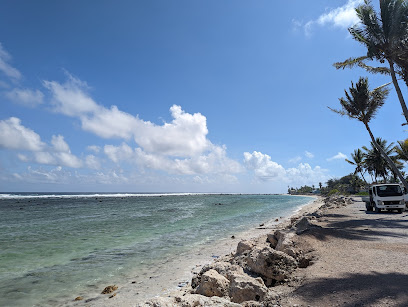
Ewa Lodge
Experience the tranquil charm of Ewa Lodge in Ronave, where comfort meets nature for an unforgettable stay in paradise.
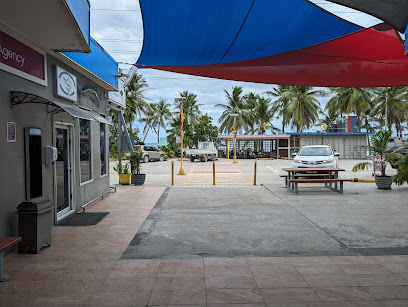
Geography of Nauru
Explore the stunning landscapes and rich culture of Nauru, a hidden gem in the Pacific offering adventure and tranquility for every traveler.
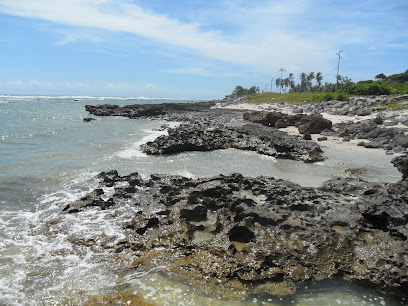
Anabar Beach
Discover the serene beauty and adventure offerings at Anabar Beach, a breathtaking tropical escape in Anabar, perfect for relaxation and exploration.
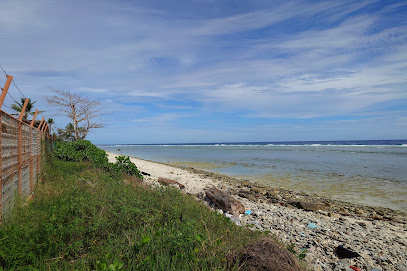
Parliament House
Explore the heart of governance at Parliament House in Yaren, Nauru, a blend of culture and political history amidst beautiful surroundings.
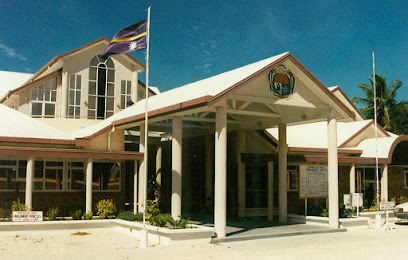
Nauru
Discover Nauru, the hidden island paradise in the Pacific with stunning landscapes, rich culture, and unforgettable experiences for every traveler.
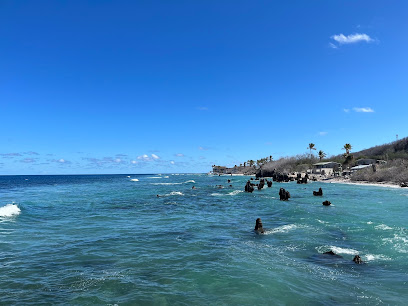
Anibare Bay
Discover the serene beauty of Anibare Bay, a tropical paradise in Nauru perfect for sunbathing, snorkeling, and immersing in local culture.
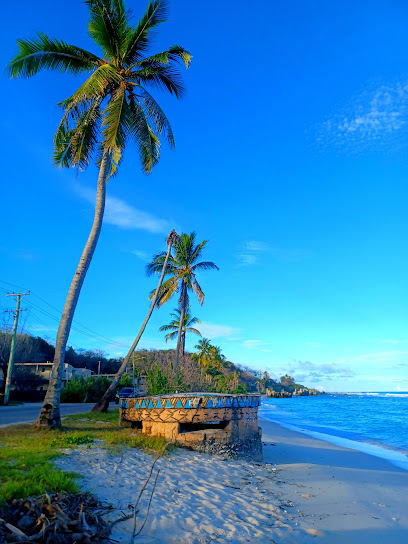
Anibare Boat Harbour Restaurant
Experience the culinary delights of Nauru at Anibare Boat Harbour Restaurant, where fresh seafood meets stunning views.
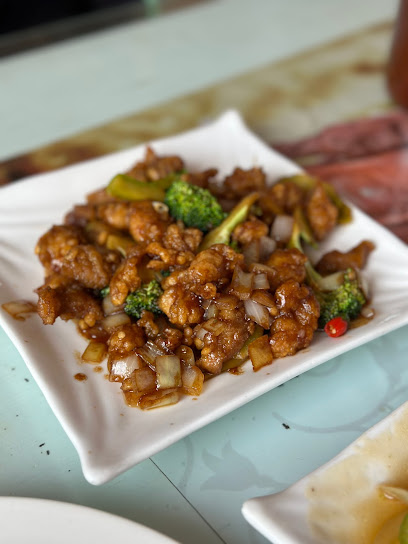
Buada Lagoon
Experience the tranquility of Buada Lagoon in Nauru, a picturesque freshwater oasis surrounded by lush greenery and rich biodiversity.
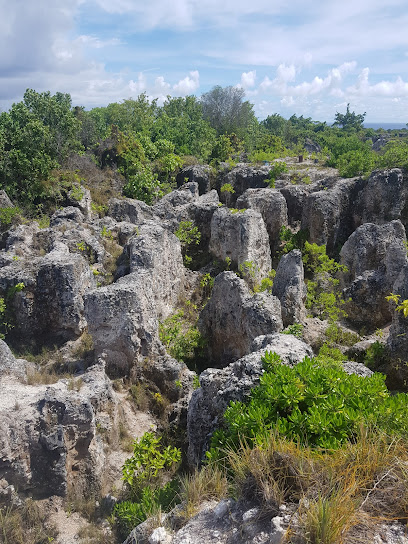
Moqua Well
Experience the tranquility of Moqua Well, a stunning natural lake in Nauru, surrounded by lush vegetation and perfect for relaxation and exploration.
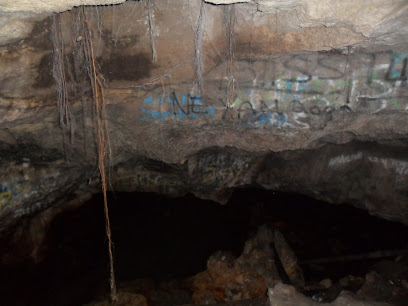
Central Plateau
Experience the stunning landscapes and rich biodiversity of the Central Plateau, a natural paradise for outdoor enthusiasts and nature lovers.

WW2 Japanese Bunker
Explore the WW2 Japanese Bunker in Anabar, a historical landmark that offers a captivating insight into World War II and the resilience of its past.

WW2 Bunker
Uncover the historical significance of the WW2 Bunker in Anabar, a well-preserved landmark that tells the story of resilience during wartime.
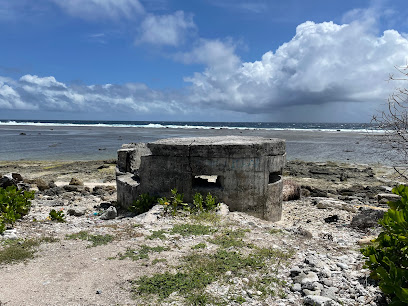
Moqua Caves
Explore the enchanting Moqua Caves in Yaren, where stunning limestone formations meet serene underground pools, perfect for nature lovers and adventurers.

Unmissable attractions to see
Anabar Beach
Discover the pristine beauty of Anabar Beach, a tropical oasis featuring white sands, turquoise waters, and vibrant marine life in Nauru.
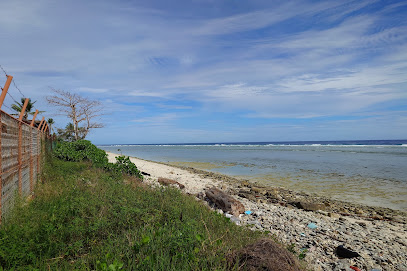
Anibare Bay
Discover the tranquil beauty of Anibare Bay, where crystal-clear waters meet stunning landscapes for a perfect tropical getaway.
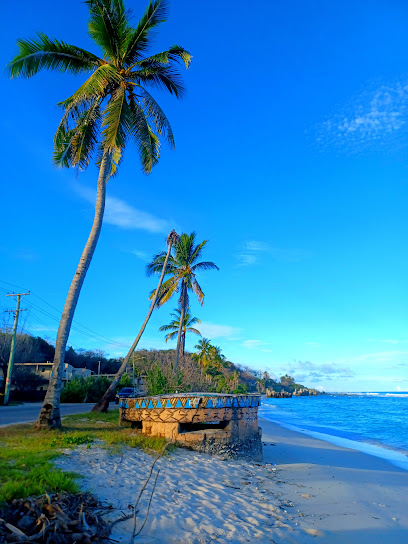
Western Bay
Explore Western Bay: A tranquil park in Boe, perfect for relaxation, picnics, and enjoying the natural beauty of the island.
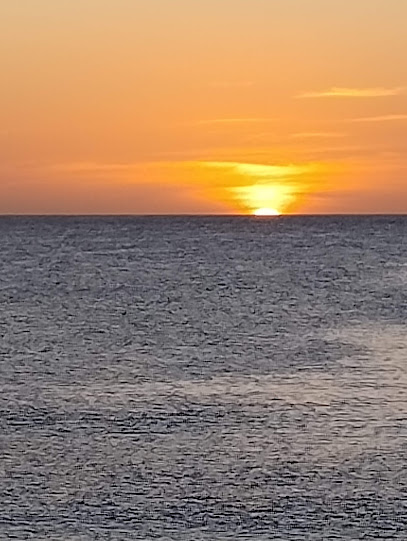
سبحان الله
Experience the breathtaking beauty and architectural grandeur of Sabhan Allah Bridge, a must-see tourist attraction in Syria.

Essential places to dine
The Bay Restaurant
Experience exquisite dining at The Bay Restaurant in Anibare with stunning ocean views and delicious local cuisine.
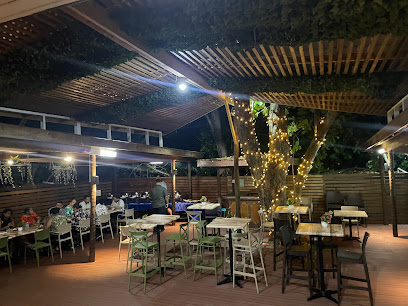
OMG Sushi Restaurant
Experience exquisite sushi craftsmanship at OMG Sushi Restaurant in Orro – a must-visit culinary gem for every food lover.
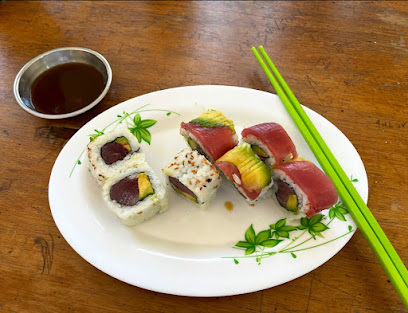
Mr Chippies
Discover authentic Nauruan cuisine at Mr Chippies, where fresh seafood meets warm island hospitality in Anibare.
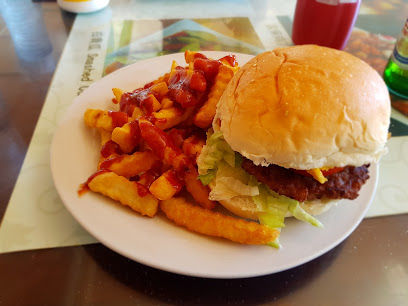
Star Kingdom
Experience authentic Asian cuisine at Star Kingdom in Boe, where every dish tells a story and every meal is a celebration.
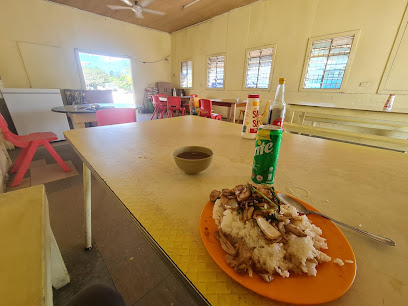
Chinese Restaurant Buada
Experience the vibrant flavors of China at Chinese Restaurant Buada in Arenibek – a must-visit for food lovers seeking authenticity.

Praises Restaurant
Experience authentic Chinese flavors at Praises Restaurant in Anabar – where every dish tells a story of tradition and taste.
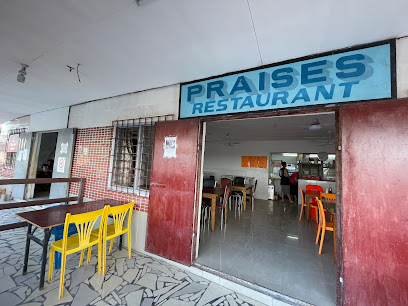
Anibare Boat Harbour Restaurant
Discover Anibare Boat Harbour Restaurant: where stunning ocean views meet delicious local cuisine in a relaxed atmosphere.
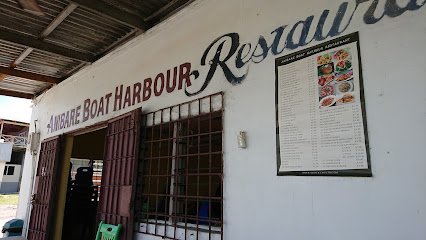
Florrowest Restaurant
Discover the flavors of Boe at Florrowest Restaurant - where local cuisine meets warm hospitality in an inviting atmosphere.
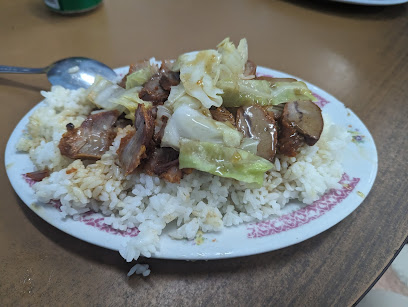
Somewhere Else in Nauru
Discover authentic Nauruan cuisine at Somewhere Else in Nauru - where local flavors meet warm hospitality.
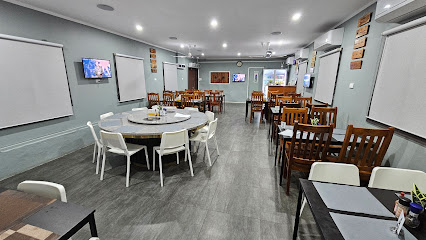
Moon River Restaurant
Experience authentic Chinese flavors at Moon River Restaurant in Arijejen's scenic waterfront.
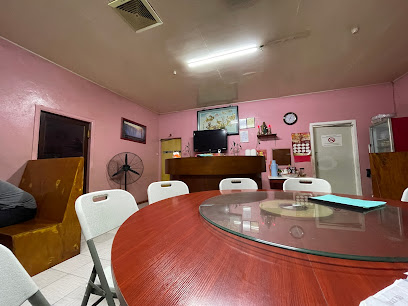
Lucky Tigeress Yum Cha
Experience the best breakfast in Arijejen at Lucky Tigeress Yum Cha, where flavor meets tradition in every bite.
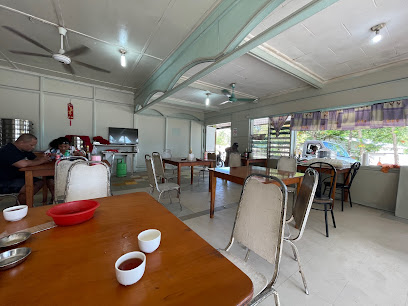
Jullem
Discover the authentic taste of China at Jullem in Anibare - where culinary tradition meets modern dining experience.
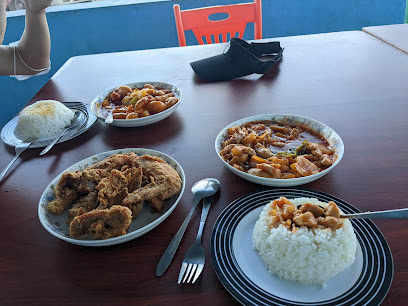
J’ RESTAURANT
Experience authentic Chinese cuisine at J’ Restaurant in Arijejen - a must-visit culinary destination for food lovers.
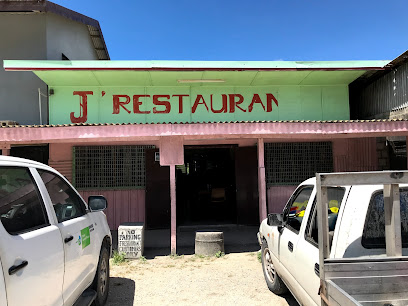
Double J
Discover Double J in Ibwenape - where local flavors meet international cuisine in a cozy dining atmosphere.
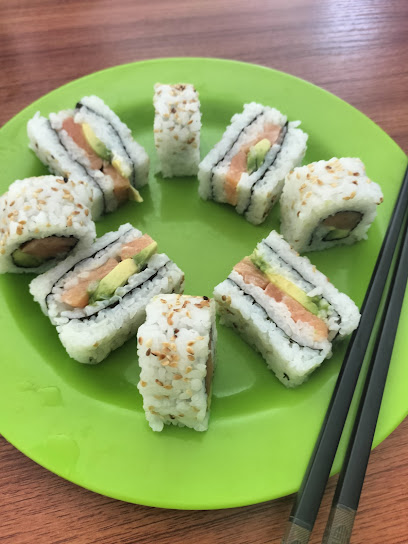
Crystal Kitchen
Experience delightful dining at Crystal Kitchen in Anibare—where families enjoy fresh flavors and warm hospitality in a vibrant setting.
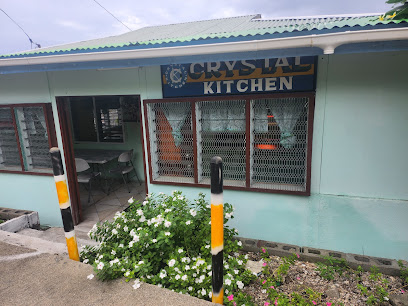
Markets, malls and hidden boutiques
Eigigu Supermarket
Discover the heart of Boe at Eigigu Supermarket, where local culture meets convenient shopping with unique flavors and friendly faces.
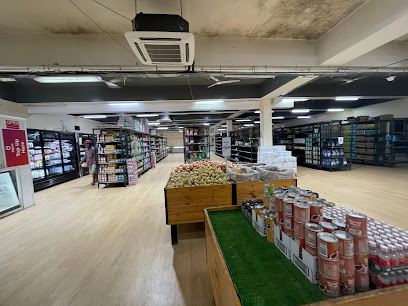
Pacific store
Discover the local flavors and culture at the Pacific Store in Nibok, where grocery shopping becomes an enriching travel experience.
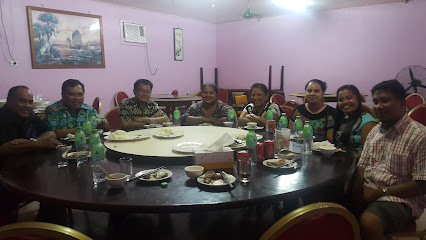
Zombies Store
Experience the vibrant local culture at Zombies Store, Yaren's charming general store filled with unique finds and friendly service.

Vim No.1 Store
Experience the essence of Nauruan culture at Vim No.1 Store, a vibrant grocery store in Arijejen offering local delicacies and everyday essentials.
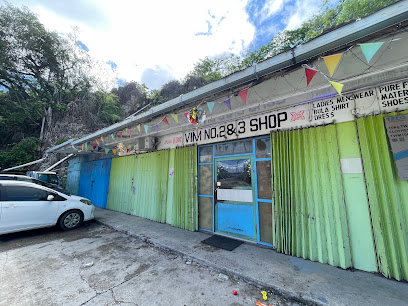
Ataro Bay Store
Explore the flavors of the island at Ataro Bay Store, your go-to grocery destination for local treats and essentials.
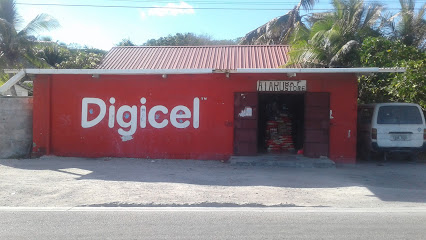
Elizabeth's Garden
Explore unique treasures and local crafts at Elizabeth's Garden in Boe, where friendly service meets a charming shopping experience.
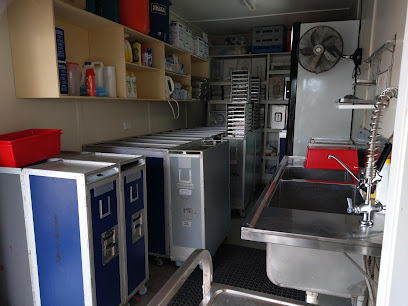
Sunset Corner Enterprise
Discover local treasures and essential goods at Sunset Corner Enterprise, the charming general store in Borderline, offering authentic experiences for every traveler.

Rainbow Store
Experience the vibrant local culture at Rainbow Store, your go-to convenience stop in Baiti, offering a variety of snacks, drinks, and unique souvenirs.
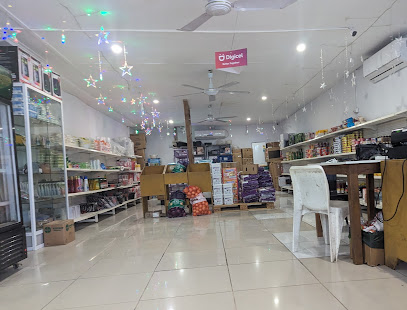
Tuka Luka Store
Explore Tuka Luka Store in Yaren for unique clothing and accessories inspired by Nauru's vibrant culture and stunning landscapes.

MyStore
Explore MyStore in Yaren: Your one-stop general store for local delights and essentials amidst the beauty of Nauru.

Aredetõ Store
Aredetõ Store in Arenibek: Your one-stop convenience shop for essentials, snacks, and local treats during your travel adventures.

Halo Store
Experience local culture and unique products at Halo Store, Arenibek's charming general store.
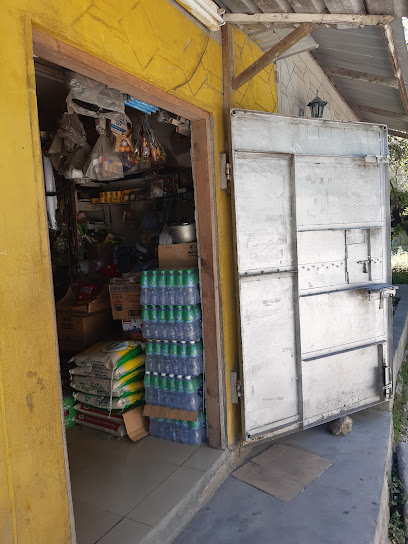
Abwan Warehouse
Experience the essence of Arijejen at Abwan Warehouse, your go-to destination for unique home goods and local craftsmanship.

Sparkle 7
Explore innovative gadgets and local products at Sparkle 7, the ultimate smart shop for tech enthusiasts and curious tourists alike.

IJ Store
Explore the rich culinary landscape of Ijuw at IJ Store, a grocery haven showcasing local and international delights.

Essential bars & hidden hideouts
Nauru International Airport
Discover the charm of Nauru International Airport, the welcoming gateway to an island paradise filled with stunning landscapes and rich cultural heritage.
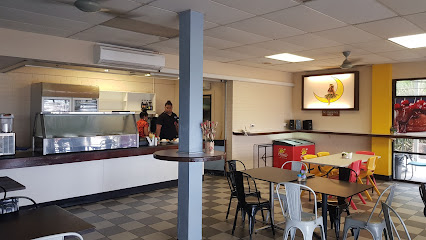
The Bay Restaurant
Experience the flavors of the island at The Bay Restaurant, a coastal dining haven in Anibare offering stunning ocean views and delectable local cuisine.
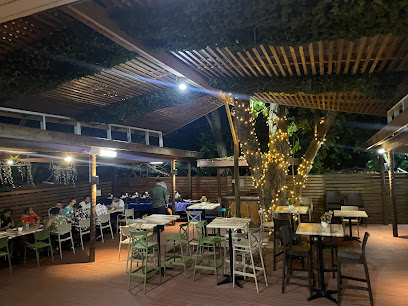
Budapest Hotel
Experience comfort and hospitality at Budapest Hotel in Anabar, your gateway to exploring the natural beauty and culture of the region.
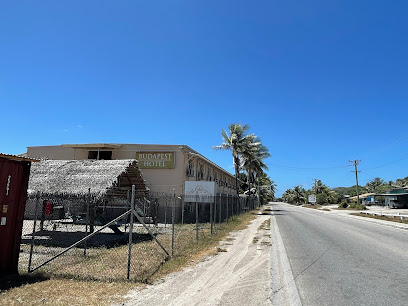
Jules On The Deck
Discover the vibrant nightlife and stunning views at Jules On The Deck, the quintessential bar experience in Nibok.
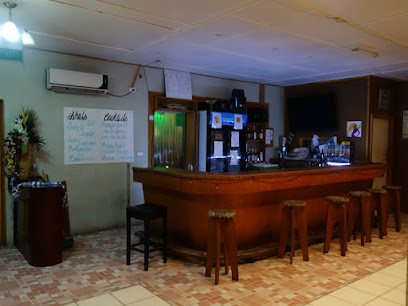
Anabar Beach
Discover the serene beauty of Anabar Beach, where crystal-clear waters and stunning sunsets await your arrival in Nauru's tropical paradise.
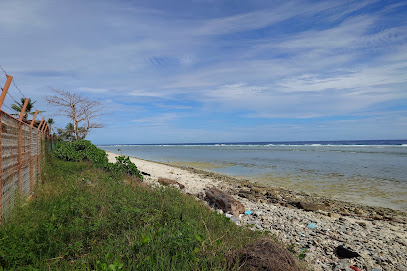
Reef Bar
Discover the vibrant atmosphere of Reef Bar in Anibare, a tropical paradise for relaxation and enjoyment with stunning beach views.
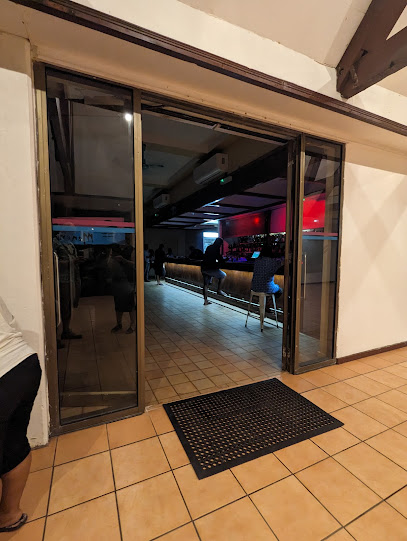
Mr Chippies
Savor the flavors of Nauru at Mr Chippies, a local gem offering delicious seafood and authentic Nauruan dishes in a relaxing atmosphere.
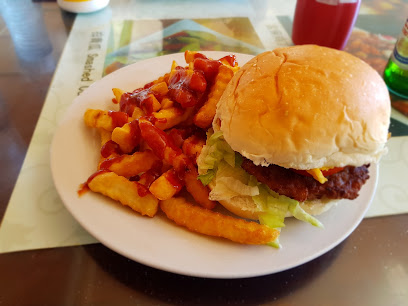
Praises Restaurant
Savor authentic Chinese cuisine in Anabar at Praises Restaurant, where every dish tells a delicious story of culinary tradition.
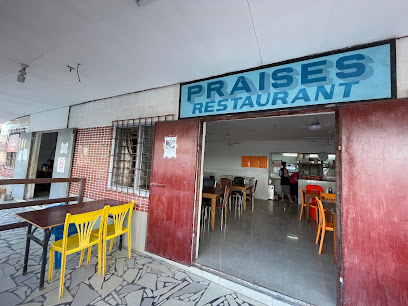
Anibare Boat Harbour Restaurant
Experience the best of Anibare's culinary scene at the waterfront Anibare Boat Harbour Restaurant, where fresh seafood meets breathtaking views.
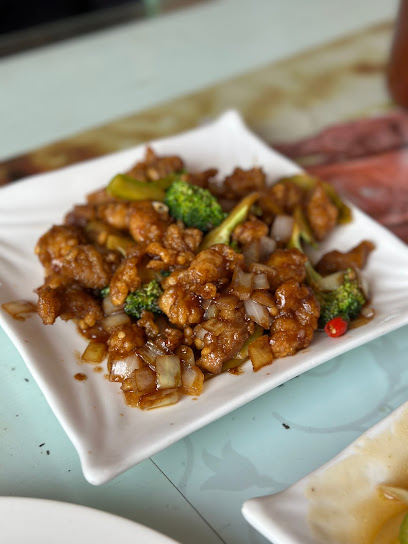
Nauru Fish Market
Explore the vibrant Nauru Fish Market, where fresh catches meet local culture in a delightful coastal experience.
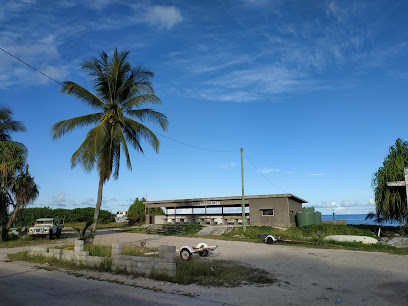
K-Love Restaurant
Experience the flavors of the Pacific at K-Love Restaurant in Yaren, where local ingredients meet international cuisine in a cozy atmosphere.
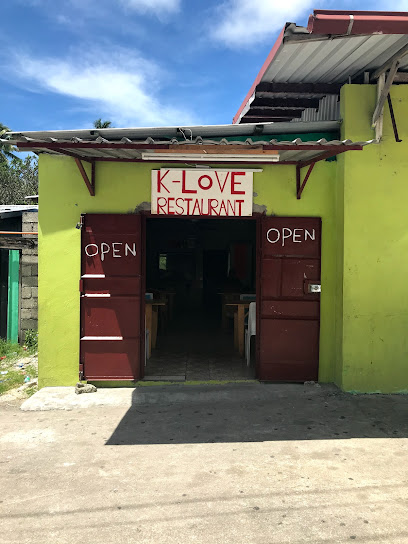
Milk Bar
Experience the charm of Milk Bar in Yangor, where exceptional milk drinks meet a cozy atmosphere for a perfect break.
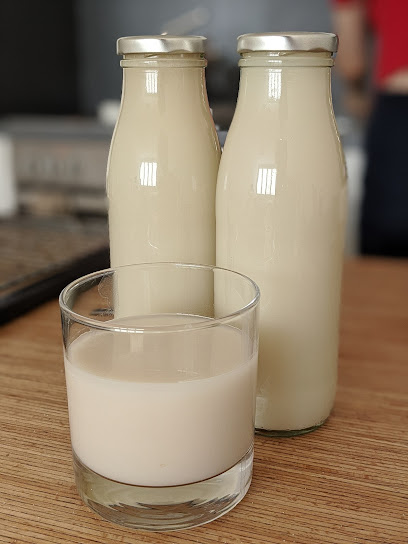
Quantum Car Wash - Nauru
Discover the pristine beauty of Nauru with a visit to Quantum Car Wash, your go-to spot for keeping your vehicle spotless and ready for adventure.

AIA Grog bar
Discover the lively AIA Grog Bar in Anabar, where vibrant nightlife meets local culture and camaraderie.

Local Phrases
-
- HelloIaorana
[yah-oh-rah-nah] - GoodbyeNana
[nah-nah] - YesE
[eh] - NoAe
[eye] - Please/You're welcomeMauruuru
[mah-roo-roo] - Thank youMauruuru
[mah-roo-roo] - Excuse me/SorryFaaitoito
[fah-eye-toe-toe] - How are you?Eaha rava te huru?
[eh-ah-hah rah-vah teh hoo-roo] - Fine. And you?Maitai. Eaha rava koe?
[my-tie. eh-ah-hah rah-vah koh-ay] - Do you speak English?E mea te haere i te reo Piritene?
[eh meh-ah teh high-ree ee teh reh-oh pee-ree-teh-neh] - I don't understandE mea te haere i te reo Piritene?
[eh meh-ah teh high-ree ee teh reh-oh pee-ree-teh-neh]
- HelloIaorana
-
- I'd like to see the menu, pleaseE feia te haere i te meniu, maruru
[eh fay-ah teh high-ree ee teh meh-nee-oo, mah-roo-roo] - I don't eat meatE mea te haere i te kaaka
[eh meh-ah teh high-ree ee teh kah-kah] - Cheers!Manuia!
[mah-noo-yah] - I would like to pay, pleaseE feia te faahoro, maruru
[eh fay-ah teh fah-ah-hoh-roh, mah-roo-roo]
- I'd like to see the menu, pleaseE feia te haere i te meniu, maruru
-
- Help!Aita!
[eye-tah] - Go away!Haere atu!
[high-ree ah-too] - Call the Police!E haere ia te punuia!
[eh high-ree ee-ah teh poo-noo-yah] - Call a doctor!E haere ia te taata maoi!
[eh high-ree ee-ah teh tah-ah-tah mah-oh-ee] - I'm lostE te maamaa te haere
[eh teh mah-mah-teh high-ree] - I'm illE te mate te haere
[eh teh mah-teh teh high-ree]
- Help!Aita!
-
- I'd like to buy...E feia te hoko...
[eh fay-ah teh hoh-koh] - I'm just lookingE mea te haere i te titau
[eh meh-ah teh high-ree ee teh tee-tow] - How much is it?E hia te moni?
[eh hee-ah teh moh-nee] - That's too expensiveTe moni teitei roa
[teh moh-nee teh-ee-teh-ee roh-ah] - Can you lower the price?E mea te haere i te kona
[eh meh-ah teh high-ree ee teh koh-nah]
- I'd like to buy...E feia te hoko...
-
- What time is it?E aha te taata?
[eh ah-hah teh tah-ah-tah] - It's one o'clockTe haere te tahi
[teh high-ree teh tah-hee] - Half past (10)E toru te pihaa (10)
[eh toh-roo teh pee-hah (10)] - MorningPoo
[poh-oh] - AfternoonAopo
[ah-oh-poh] - EveningI te aoti
[ee teh ah-oh-tee] - YesterdayI te henua
[ee teh heh-noo-ah] - TodayI teie ra
[ee teh-ee-ay rah] - TomorrowA mahana
[ah mah-hah-nah] - 1Tahi
[tah-hee] - 2Rua
[roo-ah] - 3Toru
[toh-roo] - 4Faa
[fah-ah] - 5Rima
[ree-mah] - 6Ono
[oh-noh] - 7Fitu
[fee-too] - 8Valu
[vah-loo] - 9Iva
[ee-vah] - 10Afulu
[ah-foo-loo]
- What time is it?E aha te taata?
-
- Where's a/the...?E aha te...
[eh ah-hah teh] - What's the address?E aha te tuhinga?
[eh ah-hah teh too-heen-gah] - Can you show me (on the map)?E mea te haere i te mahere?
[eh meh-ah teh high-ree ee teh mah-hair-ray] - When's the next (bus)?E aha te taata e haere mai?
[eh ah-hah teh tah-ah-tah eh high-ree my] - A ticket (to ....)Te tiki (ki ...)
[teh tee-kee (key)]
- Where's a/the...?E aha te...
History of Anabar
-
Anabar, a district in the northeastern part of Nauru, has a rich history of ancient Polynesian and Micronesian settlers. The early inhabitants of Anabar were skilled fishermen and navigators who adapted their lifestyle to the island's environment. They lived in harmony with nature, utilizing the native flora and fauna for sustenance and tools.
-
During the late 19th and early 20th centuries, Nauru, including Anabar, came under colonial rule by Germany, followed by Australia, New Zealand, and the United Kingdom as part of the League of Nations mandate after World War I. The colonial period brought significant changes to Anabar's socio-economic landscape, as phosphate mining became the island's primary industry, impacting local communities and their traditional way of life.
-
Anabar, like the rest of Nauru, was heavily impacted during World War II. Japanese forces occupied the island in 1942, leading to the deportation of many Nauruans to labor camps in Micronesia. The war left an indelible mark on Anabar, with remnants of Japanese fortifications and bunkers still visible today, serving as somber reminders of the island's wartime history.
-
Nauru gained independence in 1968, and Anabar, as part of the newly sovereign nation, experienced a period of growth and modernization. The local government invested in infrastructure, education, and healthcare, improving the quality of life for Anabar's residents. Despite the decline of the phosphate industry, Anabar has retained its cultural heritage and continues to celebrate traditional Nauruan customs and festivals.
-
Anabar is known for its vibrant cultural scene, with traditional dance, music, and crafts playing a central role in community life. The district hosts various cultural events and festivals, showcasing the unique heritage of the Nauruan people. Visitors to Anabar can explore local art, participate in traditional ceremonies, and learn about the district's rich cultural history through interactions with the friendly and welcoming locals.
Anabar Essentials
-
Anabar is located in Nauru, a small island nation in the Central Pacific. The primary way to reach Nauru is by air, with Nauru International Airport (INU) being the main entry point. Flights to Nauru are limited and typically include connections from Brisbane, Australia, or other Pacific islands via Nauru Airlines. From the airport, Anabar is about a 20-minute drive, and local taxis or arranged hotel transfers are available.
-
Transportation within Anabar and Nauru is relatively straightforward. The island is small, and you can get around by walking, cycling, or using local taxis. There is also a ring road that circles the island, making it easy to navigate. Car rentals are available but limited, so it is advisable to book in advance if you wish to explore the island at your own pace.
-
The official currency in Nauru is the Australian Dollar (AUD). Credit cards are accepted in some hotels and larger establishments, but it is advisable to carry cash, especially when visiting smaller shops and local markets. ATMs are available, but they can be limited, so ensure you have enough cash for your needs.
-
Anabar and Nauru, in general, are considered safe for tourists. However, as with any destination, it is wise to take standard precautions. Avoid leaving your belongings unattended and be cautious when walking alone at night. There are no specific high-crime areas targeting tourists, but it is always best to stay vigilant and aware of your surroundings.
-
In case of emergency, dial 110 for police assistance or 111 for medical emergencies. Nauru has a central hospital that can handle most medical needs, but for serious conditions, medical evacuation may be necessary. It is highly recommended to have comprehensive travel insurance that covers medical emergencies. Local pharmacies are available for minor health issues and over-the-counter medications.
-
Fashion: Do dress modestly, especially when visiting local communities. Avoid overly revealing clothing. Religion: Do respect local customs and traditions. Nauruans are predominantly Christian, and it is polite to dress conservatively when attending church services. Public Transport: Do use available taxis and rental services respectfully. Don't expect extensive public transport options as the island is small. Greetings: Do greet people with a smile and a friendly 'hello'. Handshakes are common but not mandatory. Eating & Drinking: Do try local dishes and accept food offerings graciously. Don't refuse hospitality, as it can be considered impolite.
-
To experience Anabar like a local, visit the local markets where you can buy fresh produce and traditional goods. Engage with locals, as they are often friendly and willing to share stories about their culture and way of life. Don't miss exploring the beautiful coastal areas and engaging in activities such as snorkeling and fishing, which are popular among locals. For a unique experience, visit during local festivals or events to get a deeper understanding of Nauruan culture.
Nearby Cities to Anabar
-
Things To Do in Ijuw
-
Things To Do in Anibare
-
Things To Do in Uaboe
-
Things To Do in Buada
-
Things To Do in Denigomodu
-
Things To Do in Aiwo
-
Things To Do in Boe
-
Things To Do in Yaren
-
Things To Do in Kosrae
-
Things To Do in Mili
-
Things To Do in Majuro
-
Things To Do in Aur
-
Things To Do in Lata
-
Things To Do in Auki
-
Things To Do in Tulagi



